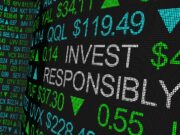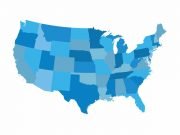GDP hasn’t fallen this much in 12 years.
Thanks to the coronavirus, GDP contracted at an annualized rate of 4.8%. Economists were only expecting a decline of 3.9%. Going forward, it could contract by as much as 25%, with some forecasts calling for a 40% fall.
According to the U.S. Bureau of Economic Analysis (BEA), “The decline in first quarter GDP was, in part, due to the response to the spread of COVID-19, as governments issued ‘stay-at-home’ orders in March. This led to rapid changes in demand, as businesses and schools switched to remote work or canceled operations, and consumers canceled, restricted, or redirected their spending. The full economic effects of the COVID-19 pandemic cannot be quantified in the GDP estimate for the first quarter of 2020 because the impacts are generally embedded in source data and cannot be separately identified.”
BEA also noted:
- Current-dollar personal income increased $95.2 billion in the first quarter, compared with an increase of $144.1 billion in the fourth quarter. The deceleration was more than accounted for by a deceleration in compensation that was partly offset by an acceleration in personal current transfer receipts.
- Disposable personal income increased $76.7 billion, or 1.9 percent, in the first quarter, compared with an increase of $123.7 billion, or 3.0 percent, in the fourth quarter. Real disposable personal income increased 0.5 percent, compared with an increase of 1.6 percent.
- Personal outlays decreased $253.5 billion, after increasing $118.8 billion. The decrease was mainly accounted for by a decrease in PCE.
- Personal saving was $1.60 trillion in the first quarter, compared with $1.27 trillion in the fourth quarter. The personal saving rate—personal saving as a percentage of disposable personal income—was 9.6 percent in the first quarter, compared with 7.6 percent in the fourth quarter.
The biggest reason for the fall were consumers.
Many cut back on spending on cars, clothes, travel, eating out, and as millions of Americans lost their jobs to the crisis. Health care spending also fell 2.3% as hospitals canceled or delayed many procedures outside of coronavirus cases.
“The upshot is this was already an economic catastrophe within two weeks of the lockdowns going into effect,” said Paul Ashworth, chief U.S. economist at Capital Economics, as also quoted by CNBC. “The second quarter will be far worse.”












